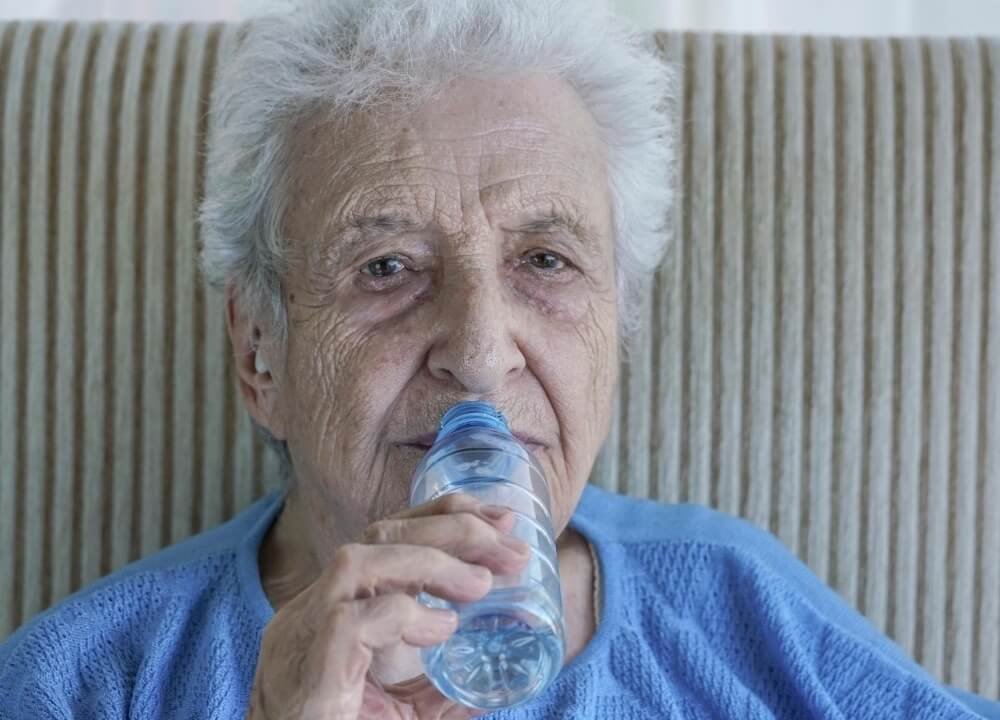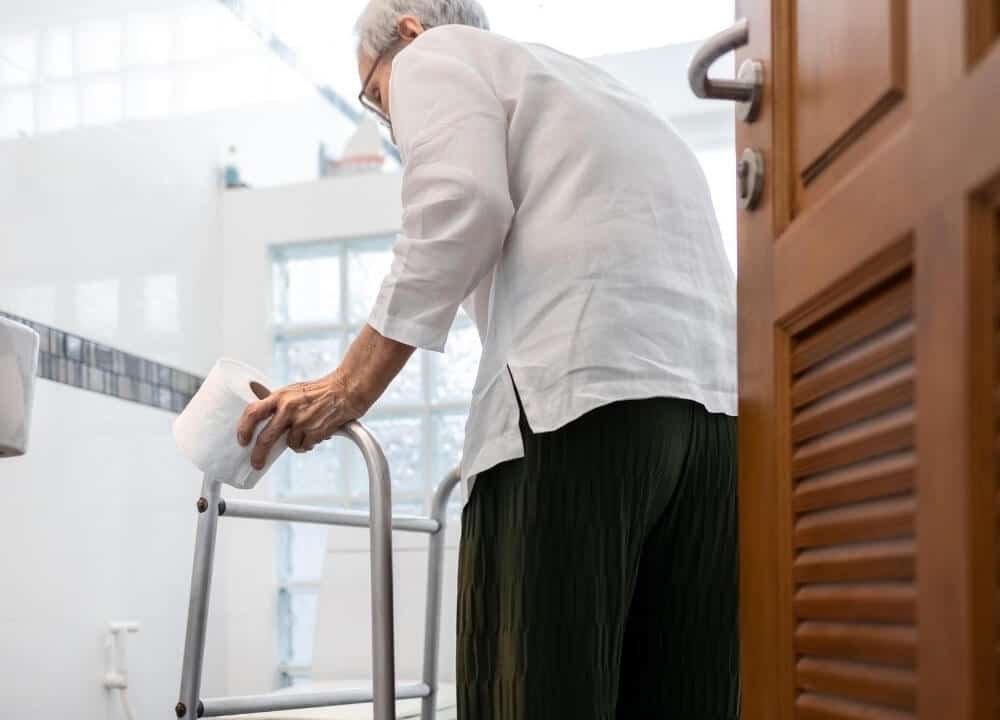Many elderly persons at some point in their lives may have to deal with Alzheimer’s and diarrhea.
Diarrhea happens when an individual gets three or more watery or unformed stools in 24 hours.
It can be a very tiring time for the affected individual as well as the caregivers.
Contents
Can Alzheimer’s cause diarrhea?
There are several reasons a person with Alzheimer’s may experience diarrhea and toilet problems, such as:
1. Medication side effect: Some Alzheimer’s drugs and other medications that a person may be taking could be the cause of diarrhea.
2. Viruses or bacteria: These infections can result in diarrhea.
3. Abdominal Surgery: At times recent surgery especially in the belly area around the gallbladder or intestines can cause diarrhea.
4. Irritable Bowel Syndrome (IBS): Most people who have cramps and diarrhea for no apparent reason may have IBS. This can be caused by stress, lack of exercise, and some food.
5. Malabsorption syndromes: This usually occurs when the body is not getting enough nutrients from the intestines. Examples of these include celiac disease and lactose intolerance.
After knowing some of the reasons persons with Alzheimer’s may get diarrhea, let’s look into some of the symptoms to be on the lookout for when someone has diarrhea.
Symptoms of Diarrhea
Several warning signs may showcase a person has diarrhea, such as:
- Urgent need to have a bowel movement
- Bloating
- Abdominal Cramps or pain
- Nausea
- Mucus in stool
- Bloody stool, chills, or fever are symptoms that can show up if it is bacteria or virus causing the unformed stool
With this in mind, it is time to jump into some of the coping mechanisms that can help deal with a person who has Alzheimer’s and diarrhea.
Increase Fluid Uptake

A person who is going through diarrhea ends up losing a lot of fluids in their body and they are at risk of dehydration.
Caregivers should make sure the person with Alzheimer’s and diarrhea gets plenty to drink.
If an individual can keep liquids down, try and give them water, juice, sports drink, and soda but steer clear from anything that has caffeine or alcohol.
They should drink the fluids even though they are not feeling thirsty.
Apart from water, the other drinks help to put back potassium and sodium that diarrhea deprives the body.
If someone is vomiting, they may not be able to keep the liquids down. This calls for improvising where you feed them small amounts of liquids say one or two tablespoons after every 15 minutes.
If this is not sustainable, you may need to head to the doctors so that the suffering individual can be put on IV fluids.
Offer Easy-to-Digest and Low-Fiber Foods

A person who has diarrhea needs to eat foods that are high in fiber and are easy to digest.
Examples of these include eggs, toast, saltine crackers, rice, chicken, or yogurt.
When giving cooked food make sure they are well-cleaned and cooked so that the foods do not end up making the problem worse.
It is advisable to stay away from heavily seasoned foods, spicy meals, and foods that have high-fat content. Cabbage, beans, raw vegetables, and fruits can also make diarrhea worse.
Avoid Medication

Where necessary, it is usually best to avoid medication when dealing with Alzheimer’s and diarrhea.
This is because diarrhea helps to eliminate viral or bacterial infections.
If a person takes the drugs, the infection may end up staying longer in the body causing more problems. In most cases, diarrhea episodes will last for two days and clear up on their own.
However, if a person must take medication, it is best to seek advice from an expert medic to get a proper prescription.
Keep in mind that the affected individual should stay away from medication if they have a high fever, have been constipated recently, has a swollen belly, or still has diarrhea even after two days.
It is also not advisable for the person to take medication if they have black, tarry stool, blood in the stool, or stool that has a cranberry color.
Use of Supplements

Some supplements can help deal with diarrhea for persons who have dementia.
However, it is important to talk to your doctor before taking anything so that the professional can give you the green light or offer some solid recommendations.
The most common supplements include probiotics that feature normal intestinal bacteria that can help successfully stop the watery stools.
Ensure the Person is as Comfortable as Possible

Diarrhea comes with a lot of discomforts; thus, it is important to make sure that the affected individuals end up feeling as comfortable as possible.
If possible, the person should stay near the washroom so that they can dash in anytime they need to use the toilet.
When mobility is an issue, caregivers may want to consider the use of adult diapers, pads.
Approach this topic with caution because it can be embarrassing for a person who has never used them before.
Change the “briefs” often so that they are not the cause of additional discomfort during the diarrhea period.
Consult a Doctor

If you try most home remedies and they do not seem to work for Alzheimer’s and diarrhea, it is best to consult a doctor as soon as possible.
The professional will run the necessary tests and offer proper medication.
Other circumstances where it is important to call the doctor include:
- When a person has had over six watery or unformed stools within two hours
- If diarrhea happens right after constipation
- Pale, greasy, and foul-smelling stools
- Diarrhea that goes on for more than 7 days
- Diarrhea that is accompanied by a low-grade fever of about 99-101 F (37.2-38.3 °C) that lasts for over 48 hours
- When there is blood in the stool
- If vomiting is accompanied by diarrhea
Naturally, a person who has diarrhea may not want to walk into the doctor’s office.
At this point, you may want to consider the services of mobile healthcare professionals.
The experts will travel to the patient and offer home treatment that many persons with Alzheimer’s and diarrhea may prefer.







